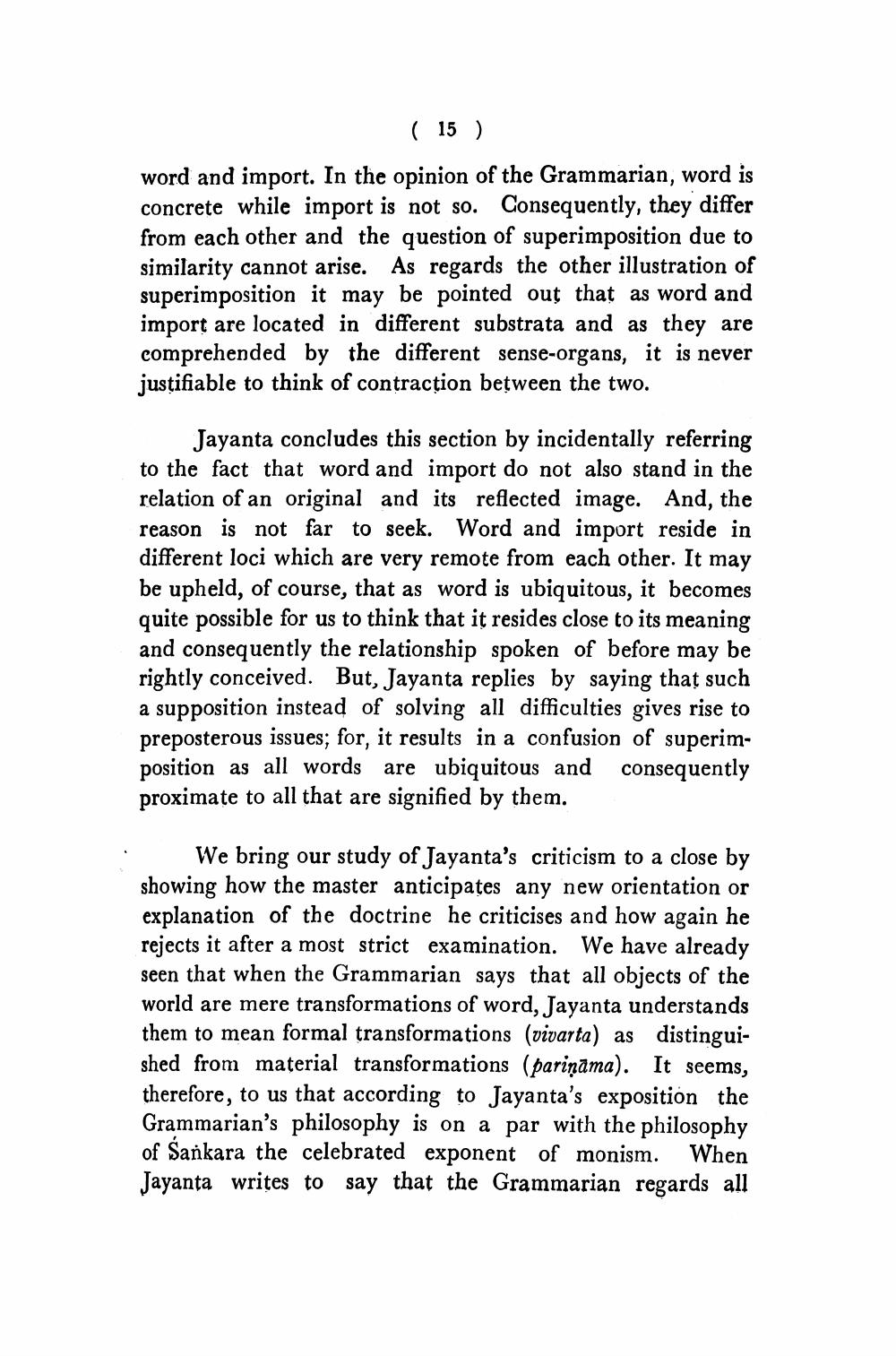________________
( 15 ) word and import. In the opinion of the Grammarian, word is concrete while import is not so. Consequently, they differ from each other and the question of superimposition due to similarity cannot arise. As regards the other illustration of superimposition it may be pointed out that as word and import are located in different substrata and as they are comprehended by the different sense-organs, it is never justifiable to think of contraction between the two.
Jayanta concludes this section by incidentally referring to the fact that word and import do not also stand in the relation of an original and its reflected image. And, the reason is not far to seek. Word and import reside in different loci which are very remote from each other. It may be upheld, of course, that as word is ubiquitous, it becomes quite possible for us to think that it resides close to its meaning and consequently the relationship spoken of before may be rightly conceived. But, Jayanta replies by saying that such a supposition instead of solving all difficulties gives rise to preposterous issues; for, it results in a confusion of superimposition as all words are ubiquitous and consequently proximate to all that are signified by them.
We bring our study of Jayanta's criticism to a close by showing how the master anticipates any new orientation or explanation of the doctrine he criticises and how again he rejects it after a most strict examination. We have already seen that when the Grammarian says that all objects of the world are mere transformations of word, Jayanta understands them to mean formal transformations (vivarta) as distinguished from material transformations (pariņāma). It seems, therefore, to us that according to Jayanta's exposition the Grammarian's philosophy is on a par with the philosophy of Sankara the celebrated exponent of monism. When Jayanta writes to say that the Grammarian regards all




